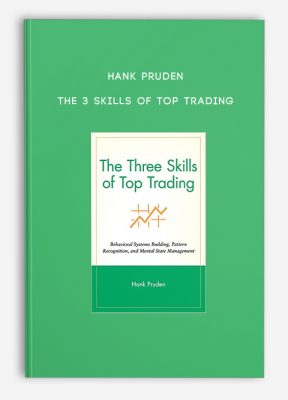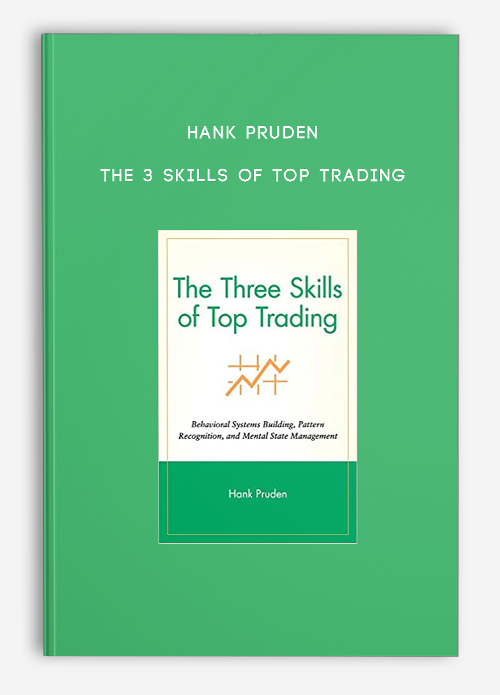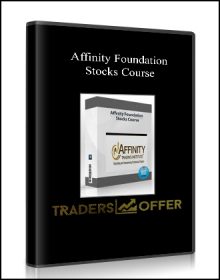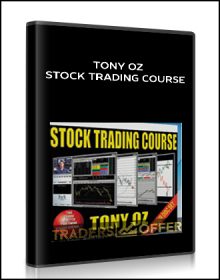Hank Pruden – The 3 Skills of Top Trading
$12.00

Hank Pruden – The 3 Skills of Top Trading
Get Hank Pruden – The 3 Skills of Top Trading on Salaedu.com
Description:
“Professor Pruden’s new book, The Three Skills of Top Trading, is unquestionably the best book on a specific trading method and the necessary attributes for trading that I have read. His logic, understanding of human foibles, and use of the Wyckoff method of trading are broadly referenced, readable, understandable, and entertaining.”
– Charles D. Kirkpatrick, II, CMT, coauthor of
Technical Analysis: The Complete Resource for Financial Market Technicians, Editor of the Journal of Technical Analysis, and board member of the Market Technicians Association
“At long last, someone has taken the time and effort to bring the work and insight of Wyckoff to wider public attention-and Hank Pruden has done so masterfully, with great clarity and eloquence. Hank has taken the best of Wyckoff’s work, combining it with the essential aspects of trader discipline and psychology, to provide a highly readable and particularly useful guide to trading. MUST READING!”
– Jacob Bernstein, www.trade-futures.com
“Hank Pruden puts all of the elements needed for successful trading into one volume. This book not only belongs on every trader’s shelf but should be close enough for continuous reference.”
– Martin J. Pring, President, www.Pring.com
“Dr. Pruden has brought together his lifetime of work in developing a modern approach to analyzing and trading the markets built upon classic market analysis from the early part of the twentieth century and topped off with modern-day tenets of behavioral finance and mental state management.”
– Thom Hartle, Director of Marketing for CQG, Inc. (www.cqg.com)
“I usually consider a book to be well worth reading if it gives me one paradigm shift. I believe that this book will give the average investor a lot more than just one.”
– Van K. Tharp, PhD, President, Van Tharp Institute
TABLE OF CONTENTS
Preface.
Acknowledgments.
About the Author.
PART ONE Systems Building and Behavioral Finance.
CHAPTER 1 Systems Building for the Three Skills of Top Trading.
CHAPTER 2 Behavioral Finance.
CHAPTER 3 The Life Cycle Model of Crowd Behavior.
PART TWO Pattern Recognition and Discretionary Trading.
CHAPTER 4 Wyckoff: The Man, the Method, the Mystique.
CHAPTER 5 The Basic Elements of Charting for the Wyckoff Method.
CHAPTER 6 The Wyckoff Method of Technical Analysis and Speculation.
CHAPTER 7 Anatomy of a Trade.
PART THREE Mental State Management.
CHAPTER 8 Trader Psychology and Mental Discipline.
CHAPTER 9 The Composite Man.
CHAPTER 10 Putting It All Together: Ten Principles for a Trader to Live.
Notes.
Recommended Reading.
Bibliography.
Index.
AUTHOR INFORMATION
Hank Pruden is a leading technical analyst with more than twenty years of active trading experience. He is currently Executive Director of the Institute of Technical Market Analysis and on the board of directors of the Technical Securities Analysts Association of San Francisco. Pruden is also a professor at Golden Gate University in San Francisco, where he has taught technical analysis for thirty years. He has also served on the board of directors of the Market Technicians Association and served as vice chair of the International Federation of Technical Analysts.
Bond -Stock Trading course: Learn about Bond -Stock Trading
Bond trading definition
Bond trading is one way of making profit from fluctuations in the value of corporate or government bonds.
Many view it as an essential part of a diversified trading portfolio, alongside stocks and cash.
A bond is a financial instrument that works by allowing individuals to loan cash to institutions such as governments or companies.
The institution will pay a defined interest rate on the investment for the duration of the bond, and then give the original sum back at the end of the loan’s term.
A stock trader or equity trader or share trader is a person or company involved in trading equity securities.
Stock traders may be an agent, hedger, arbitrageur, speculator, stockbroker.
Such equity trading in large publicly traded companies may be through a stock exchange.
Stock shares in smaller public companies may be bought and sold in over-the-counter (OTC) markets.
Stock traders can trade on their own account, called proprietary trading, or through an agent authorized to buy and sell on the owner’s behalf.
Trading through an agent is usually through a stockbroker. Agents are paid a commission for performing the trade.
Major stock exchanges have market makers who help limit price variation (volatility) by buying and selling a particular company’s shares on their own behalf and also on behalf of other clients.
More Course: BOND – STOCK
Outstanding Course:T3 Live The Simple Art of Trading
1 review for Hank Pruden – The 3 Skills of Top Trading
Add a review Cancel reply
Related products
Forex - Trading & Investment
Forex - Trading & Investment
Forex - Trading & Investment
Stock Analyzer – Top Stock Picks – SuperNova Elite [76 videos (mp4)]
Forex - Trading & Investment
Forex - Trading & Investment





![Investors Business Daily Jan~June 2015 - [ePaper (PDF)]](https://tradersoffer.forex/wp-content/uploads/2016/11/Investors-Business-Daily-JanJune-2015-220x280.jpg)
![Stock Analyzer - Top Stock Picks - SuperNova Elite [76 videos (mp4)]](https://tradersoffer.forex/wp-content/uploads/2016/11/Stock-Analyzer-Top-Stock-Picks-SuperNova-Elite-76-videos-mp4-220x280.jpg)

![Stansberry's Investment Advisory March 2016 Newsletter (Stansberry Research) [eBook (PDF)]](https://tradersoffer.forex/wp-content/uploads/2016/12/Stansberrys-Investment-Advisory-March-2016-Newsletter-Stansberry-Research-eBook-PDF-220x280.jpg)

king –
We encourage you to check Content Proof carefully before paying.
“Excepted” these contents: “Online coaching, Software, Facebook group, Skype and Email support from Author.”
If you have enough money and feel good. We encourage you to buy this product from the original Author to get full other “Excepted” contents from them.
Thank you!